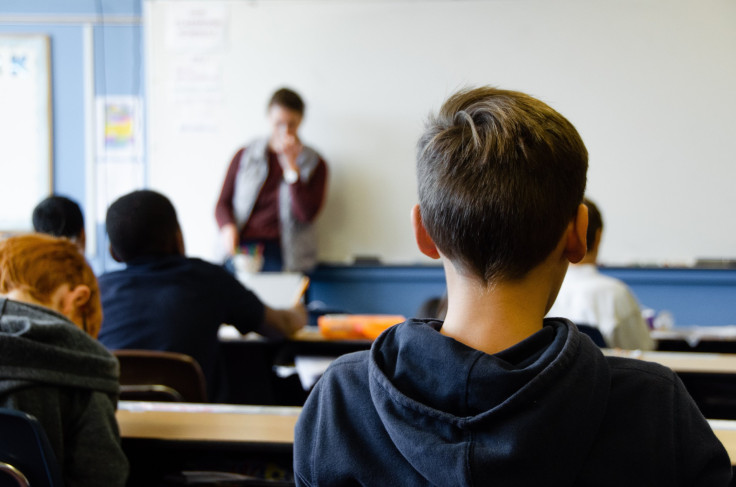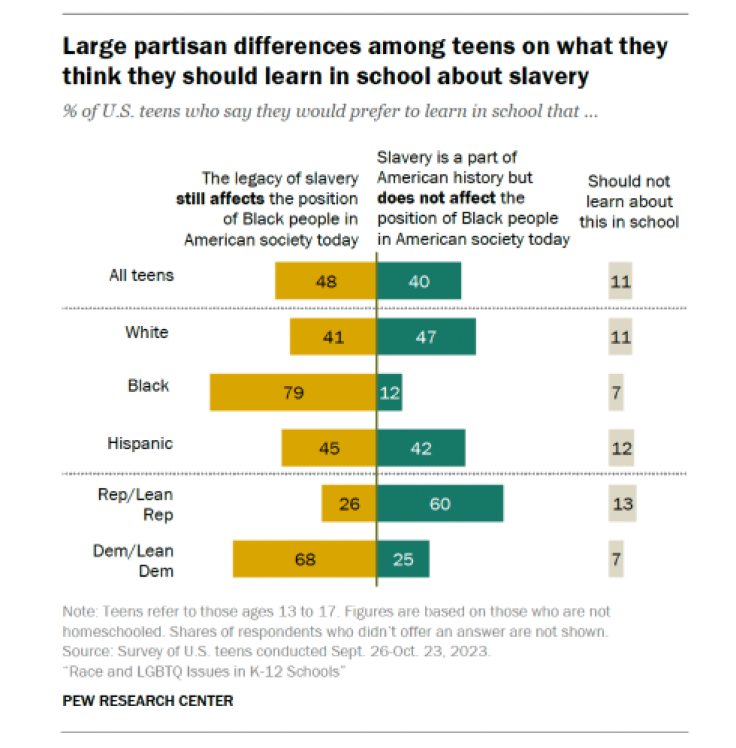
As the approach to teach about racism and the legacy of slavery in U.S. schools becomes an increasingly contentious topic, especially in some states like Texas and Florida, a new survey by the Pew Research Center sought to understand how teen students feel about the issue and what they would like to learn about in class.
Unsurprisingly, answers varied vastly depending on the students' ethnicity and political orientation. A large majority of Blacks (79%) and Democrats or those who lean Democrat (68%) said they would prefer to learn that "the legacy of slavery still affects the position of Black people in American society today."
Overall, 48% of teens gave the same answer, in contrast with 40% who agreed with the premise that "slavery is a part of American history but does not affect the position of Black people in American society today."
Latinos gave relatively mixed answers, with 45% agreeing with the first premise and 42% with the second. 12% said they should not learn about that at school at all.
Whites and Republicans or those who lean toward the party were the ones where a majority said slavery does not affect Black people today: 47% of the former said that was the case, compared to 41% who didn't, the figure being 60 and 26% for Republicans.
Most teachers (64%) said "students should learn that the legacy of slavery still affects the position of Black people in American society today." 23% said it was not the case and 8% said they shouldn't learn about the topic at all.

Asked about whether they feel comfortable when the topic of racism or racial inequality comes up in class, Latinos are the most comfortable and the least uncomfortable. 43% of respondents said they feel very or somewhat comfortable, 17% that they are very or somewhat uncomfortable and 39% that they feel neither comfortable or uncomfortable.
The figure is higher than the 36% of Whites and Blacks who said they feel comfortable, and lower than those who claimed to be uncomfortable (33% of Blacks, 19% of Whites.)
"Teens who identify with or lean toward the Democratic Party are more likely than Republican and Republican-leaning teens to say they feel comfortable when this comes up in class (43% vs. 33%). In turn, Republican teens are more likely than Democratic teens to say they feel uncomfortable (24% vs. 18%)," the study added.
Many teachers said this debate, along with gender identity, have had a negative impact on their ability to do their job. 41% said this was the case, in contrast with only 4% who said it had had a positive impact. Moreover, "71% of teachers say teachers themselves don't have enough influence over what's taught in public schools in their area."
"In turn, a majority of teachers (58%) say their state government has too much influence over this. And more say the federal government, the local school board and parents have too much influence than say they don't have enough."
© 2024 Latin Times. All rights reserved. Do not reproduce without permission.







